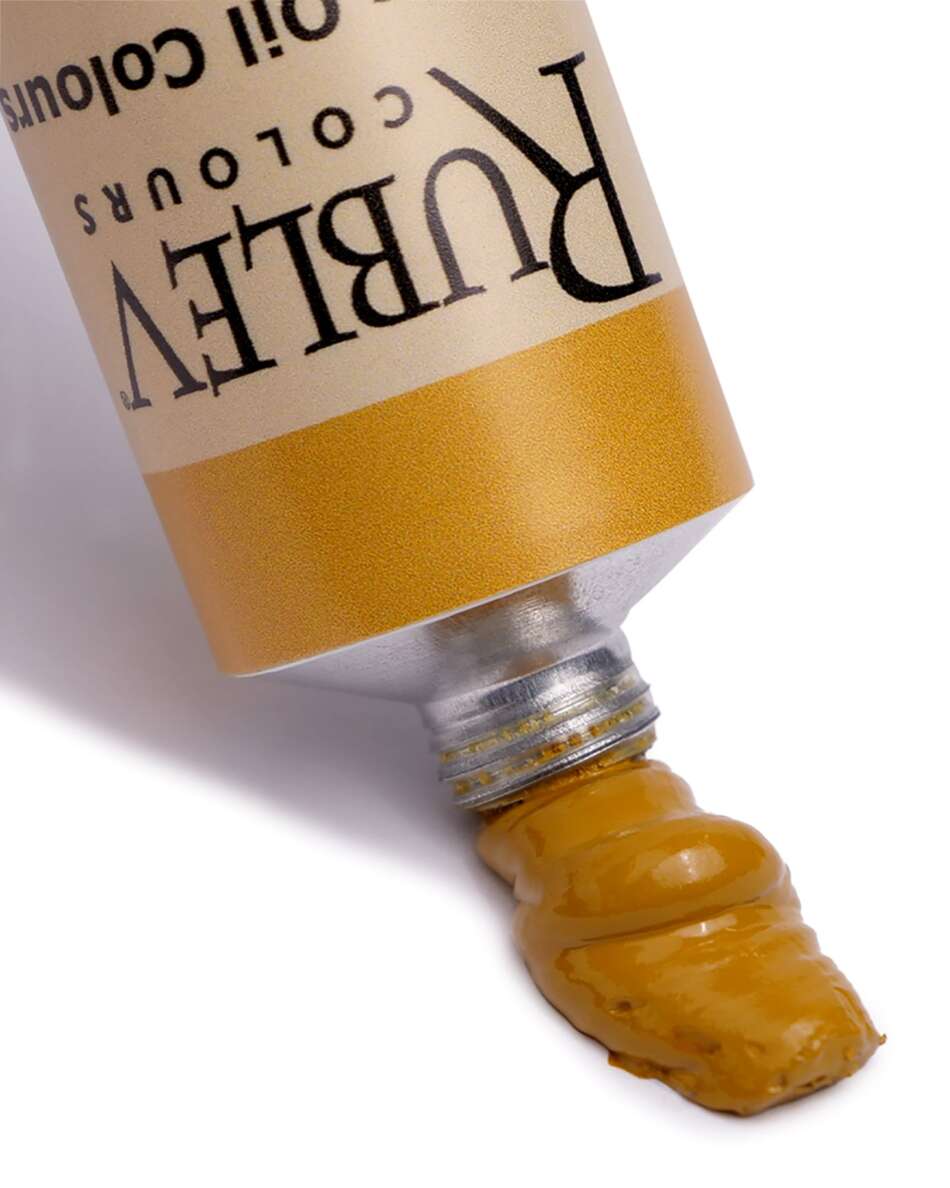Blue Ridge Yellow Ocher Oil Paint
A semi-opaque golden yellow, very fine-grained, and has a buttery consistency. Our yellow ocher is a single pigment color made of natural earths from ocher deposits in the Blue Ridge mountains of Virginia.
Blue Ridge Yellow Ocher is obtained from mineral deposits in the Blue Ridge mountains of Virginia. Iron oxide hydroxide is the principal coloring agent in yellow ochers. This color is based on the natural mineral goethite associated with varying proportions of other minerals such as clay, chalk, and quartz. The iron oxide in yellow ochers differs from other ochers in that it contains water. In other words, the iron to which they owe their color is iron oxide hydroxide.
Composition and Permanence
| Blue Ridge Yellow Ocher | |
| Color: | Blue Ridge Yellow Ocher |
| Binder: | Linseed oil |
| Additive(s): | None |
| Pigment Information | |
| Pigment: | Yellow Ocher |
| Pigment Classification: | Natural inorganic |
| Colour Index: | Pigment Yellow 43 (77492) |
| Chemical Name: | Iron oxide hydroxide |
| Chemical Formula: | α-FeOOH |
| CAS No. | 1310-14-1 20344-49-1 20344-49-4 51274-00-1 |
| Properties | |
| Code: | 303 |
| Series: | 1 |
| Opacity: | Semi-Opaque |
| Tinting Strength: | Medium |
| Drying Rate: | Medium |
| ASTM Lightfastness: | I |
| Permanence: | A - Permanent |
| Safety Information: | No acute or known chronic health hazards are associated with this product's anticipated use (most chemicals are not thoroughly tested for chronic toxicity). Protect yourself against potentially unknown chronic hazards of this and other chemical products by keeping them out of your body. Do this by avoiding ingestion, excessive skin contact, and inhaling spraying mists, sanding dust, and vapors from heating. Conforms to ASTM D-4236 |
For a detailed explanation of the terms in the table above, please visit Composition and Permanence.
Notes
Some separation of pigment and oil may occur in Rublev Colours Artist Oils and is a natural process when no wax or stabilizers are added to paint to prevent this from occurring.
All images of color swatches on this website are only approximations of the actual color of the oil paint. We have carefully matched the color in these pictures on calibrated color monitors to the actual color. However, because of the wide variance in color monitors, the results may vary.
Color Swatch Note: The color swatch was created with a thick application (left side) of color and a tint (right side) made with equal parts of color and titanium white and applied on acrylic primed cotton canvas.
Drawdown Note: The image of the "drawdown" contains a pre-mixed paint film of 6 mils (0.006 inches) thickness applied to a standard test card to examine color consistency, opacity, and other qualities. The drawdowns show the full-color strength (mass tone) on the left and mixed in a 1:2 ratio with titanium white on the right. The bottom area of the drawdowns is scraped to show undertones.
| Color Names | |
| Common Names: | English: yellow ocher French: ocre jaune German: Ocker gelb Italian: ocra giallo Portuguese: amarelo ocre Russian: охра желтая Spanish: ocre amarillo |
| Color Names | |
| Common Names: | English: yellow ocher French: ocre jaune German: Ocker gelb Italian: ocra giallo Portuguese: amarelo ocre Russian: охра желтая Spanish: ocre amarillo |
Yellow Ocher: A Comprehensive Guide To Its History, Properties, And Uses
Yellow ocher, a natural earth pigment, has been used for centuries by artists to create beautiful artworks with warm and earthy tones. From ancient Egypt to modern times, it has been a favorite among painters, and its rich history and properties continue to fascinate people. In this article, we explore the origins and fascinating properties of yellow ocher, examine how artists have used it throughout history, and explore how it has evolved over time.
| SKU | 820-303 |
|---|---|
| Brand | Rublev Colours |
| Vendor | Rublev Colours |
| Processing Time | Usually ships the next business day. |
| Color | Yellow |
| Pigment Type | Inorganic, Earth, Natural |
Health & Safety: There are no acute or known chronic health hazards with the anticipated use of this product (most chemicals are not thoroughly tested for chronic toxicity). Protect yourself against potentially unknown chronic hazards of this and other chemical products by avoiding ingestion, excessive skin contact, and inhaling spraying mists, sanding dust, and concentrated vapors from heating. Contact us for further information or consult the SDS for more information. Conforms to ASTM D-4236.


